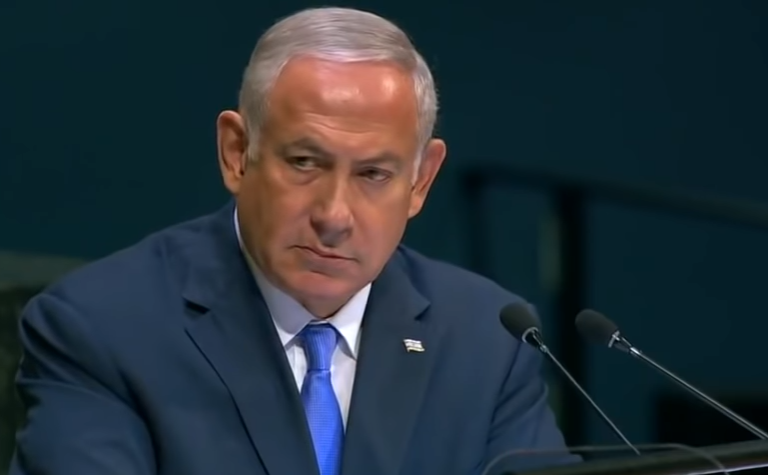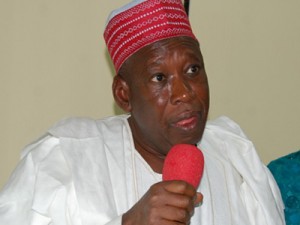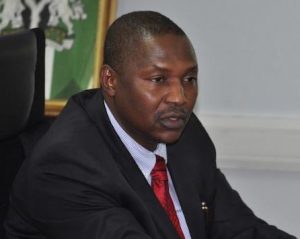
The Times of Israel: Benjamin Netanyahu does not intend to resign from office if indicted by the attorney general — whether before or after the upcoming election — and not even during a criminal trial in which he is a defendant, the prime minister was reported to have told his close associates in recent days.
Speaking with his inner circle during the run-up to Wednesday’s Knesset vote to disband and set upcoming elections for April 9, Netanyahu said that he believed Attorney General Avichai Mandelblit “won’t dare” to announce charges against him before the national ballot, the Israel Hayom daily reported Thursday morning.
Even if he is indicted, Netanyahu — who has been implicated in three criminal cases — will not cave to public pressure to step down as premier and fight the charges as a private citizen, the report said. Instead, if elected, he will remain in the top job throughout his public trial, the paper, considered pro-Netanyahu, quoted him as saying.
The law does not clearly state that a prime minister who has been indicted must resign. Rather, it says he must step down only after he has been convicted of an offense that carries moral turpitude, like bribery or breach of trust, and the appeal process has been exhausted.
The Knesset can ask the prime minister to step down before that process is complete, but if it does not, he can in theory remain in office.
According to the Israel Hayom report, Netanyahu is planning on doing just that, and would even fight a potential Supreme Court decision that he must step down.
In the 1993 corruption case of Shas politician Aryeh Deri (who was then, and is again now, interior minister), then-prime minister Yitzhak Rabin did not want to oust him even after an indictment was filed by the attorney general. However, an appeal to the Supreme Court left him with no choice.
“There’s no similar determination with regard to the prime minister, and it can be argued both ways whether it applies to the prime minister,” Israeli criminal and constitutional law expert Prof. Mordechai Kremnitzer told The Times of Israel this week, adding that Netanyahu would likely challenge a decision by the court for him to step down.
According to the Law on Knesset members’ immunity, the Knesset can give an MK parliamentary immunity from prosecution if it is persuaded that they are a victim of a vendetta.
Knesset members are permitted, within 30 days of being indicted, to ask the Knesset to give them immunity from criminal prosecution for various reasons, including that the offense allegedly committed was done in the fulfillment of the MK’s legislative duties or “the indictment is not issued in good faith or as a consequence of discrimination,” a claim Netanyahu has already made by alleging a conspiracy against him.
This week’s announcement that elections will be held in April — seven months earlier than planned — came as Mandelblit began reviewing the criminal cases against Netanyahu, marking the most high-stakes stage yet of a several-year legal entanglement that could upend the country’s political system. Reports before the announcement of early elections suggested he intended to make a decision on whether to indict the prime minister by mid-April.
Many analysts suggest Netanyahu’s timing for calling elections was far from coincidental. The prime minister, they argue, is gunning to secure reelection before an indictment is handed down, under the assumption that the attorney general would shy away from pressing charges against Israel’s longtime leader in the throes of an election campaign.
According to the Israel Hayom report, senior Likud sources also warned this week that if a decision to indict Netanyahu is made before the elections, Mandelblit “will become the target of a merciless attack” by party officials.
“There will be no holds barred and no effort to safeguard his honor. The entire Likud campaign will be directed against him,” the paper cited them as warning.
Responding to the report, the Likud party put out a statement denying Netanyahu had made the statements — which had in any case been attributed to party sources — “since Prime Minister Netanyahu has not spoken to anyone on this matter.”
“No one in Likud is threatening the attorney general,” the statement said, alleging instead that “threats and pressures to indict Netanyahu at any cost and in any case come daily from the left and the media.”
Notably, the statement did not deny that Netanyahu had said he would not step down if indicted.
The media watchdog The Seventh Eye, however, reported that Israel Hayom in fact published two different print editions of Thursday’s paper, the first attributing all the comments to Netanyahu, and the second attributing the warnings against Mandelblit to Likud sources.
Speaking to Army Radio in response to the Israel Hayom report, Communications Minister Tzachi Hanegbi, considered a close associate of Netanyahu, echoed some of the prime minister’s reported sentiments, stressing there was no need for him to step down in such a case.
“The prime minister is today at the height of his power and status. The legal requirement to resign only comes after a conviction,” Hanegbi said.
“A government bureaucrat cannot use [an indictment] to reverse the decision of the people,” he added, in a clear swipe at Mandelblit.
Initial reports after Monday’s announcement that elections would be held in April, citing shadowy unnamed legal officials, said Mandelblit would likely delay any such announcement to avoid the suggestion he was intervening in Israel’s political process. Later reports, however, quoting similar anonymous officials, said he could make a decision by February.
After the election, the Likud sources also told Israel Hayom on Thursday, Netanyahu would condition entry into his coalition on parties promising to remain in the government even if he is indicted at a later date. The ultra-Orthodox, Jewish Home and Yisrael Beytenu parties are reportedly seen by Likud as certain to make such a promise, while new parties headed by Benny Gantz and Orli Levy-Abecasis, Kulanu, Yesh Atid, and even the Zionist Union would all be “possible options for coalition partners” if they make similar declarations.
Kulanu leader Moshe Kahlon and Yesh Atid chair Yair Lapid have both said publicly on a number of occasions that Netanyahu cannot continue to lead the country if he is charged.
Police have recommended Netanyahu be indicted in each of the three probes against him. Of the cases Netanyahu is suspected of illegal activity in, the one known as Case 4000 is considered by the State Prosecutor’s Office to be the most serious, according to Israeli television reports.
In that case, Netanyahu is suspected of having advanced regulatory decisions as communications minister and prime minister from 2015 to 2017 that benefited Shaul Elovitch, the controlling shareholder in Bezeq, the country’s largest telecommunications firm, in exchange for positive coverage from Elovitch’s Walla news site.
The prosecutor’s office last week told Mandeblit the allegations constituted “a clear case of bribery,” according to Hadashot TV news. Recommendations for bribery charges were also made in the cases known as 1000 and 2000, though those were seen as less clear-cut, according to the report.
In Case 1000, Netanyahu is suspected of receiving benefits worth about NIS 1 million ($282,000) from billionaire benefactors, including Israeli Hollywood producer Arnon Milchan, in exchange for assistance on various issues.
Case 2000 involves a suspected illicit quid pro quo deal between Netanyahu and Yedioth Ahronoth publisher Arnon Mozes that would have seen the prime minister hobble a rival daily newspaper, the Sheldon Adelson-backed freebie Israel Hayom, in return for more favorable coverage from Yedioth.
Netanyahu, who has been in office since 2009, has denied wrongdoing and portrays the cases as part of a conspiracy against him encompassing the left, the media, and law enforcement officials.




